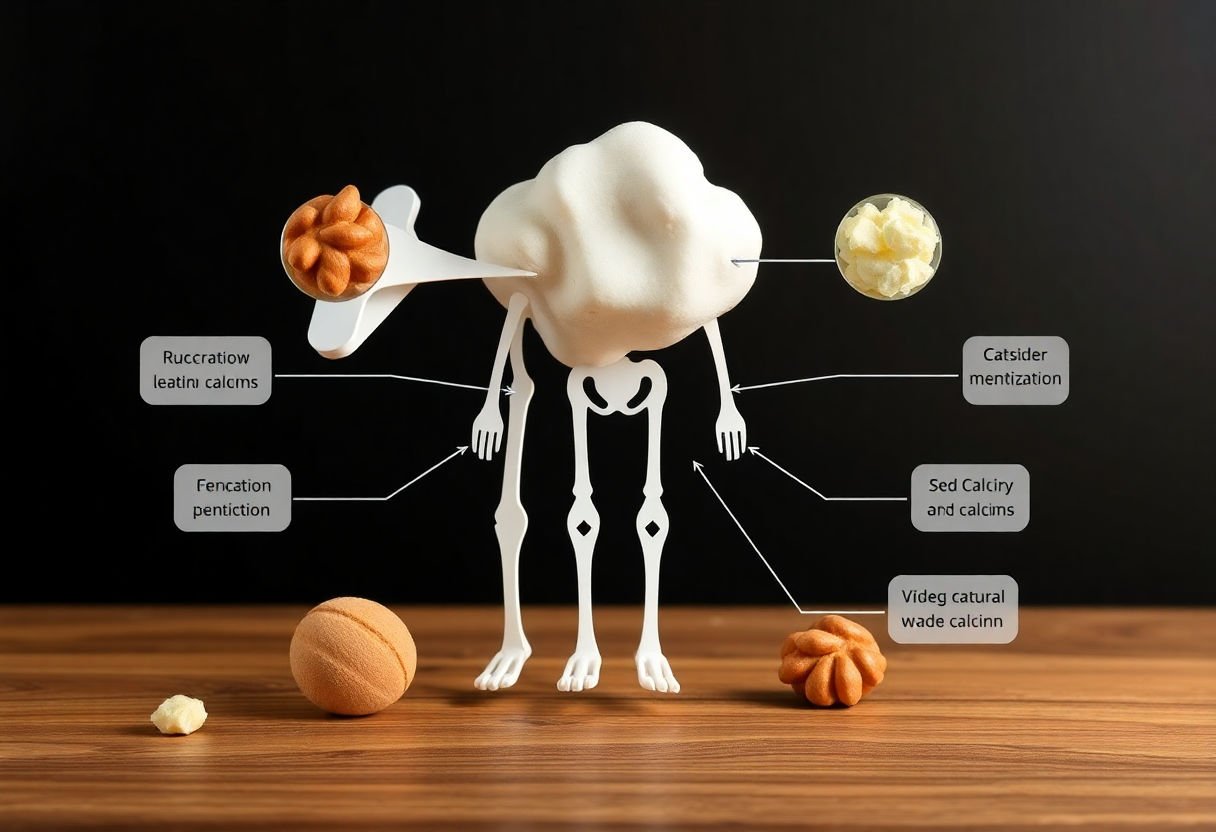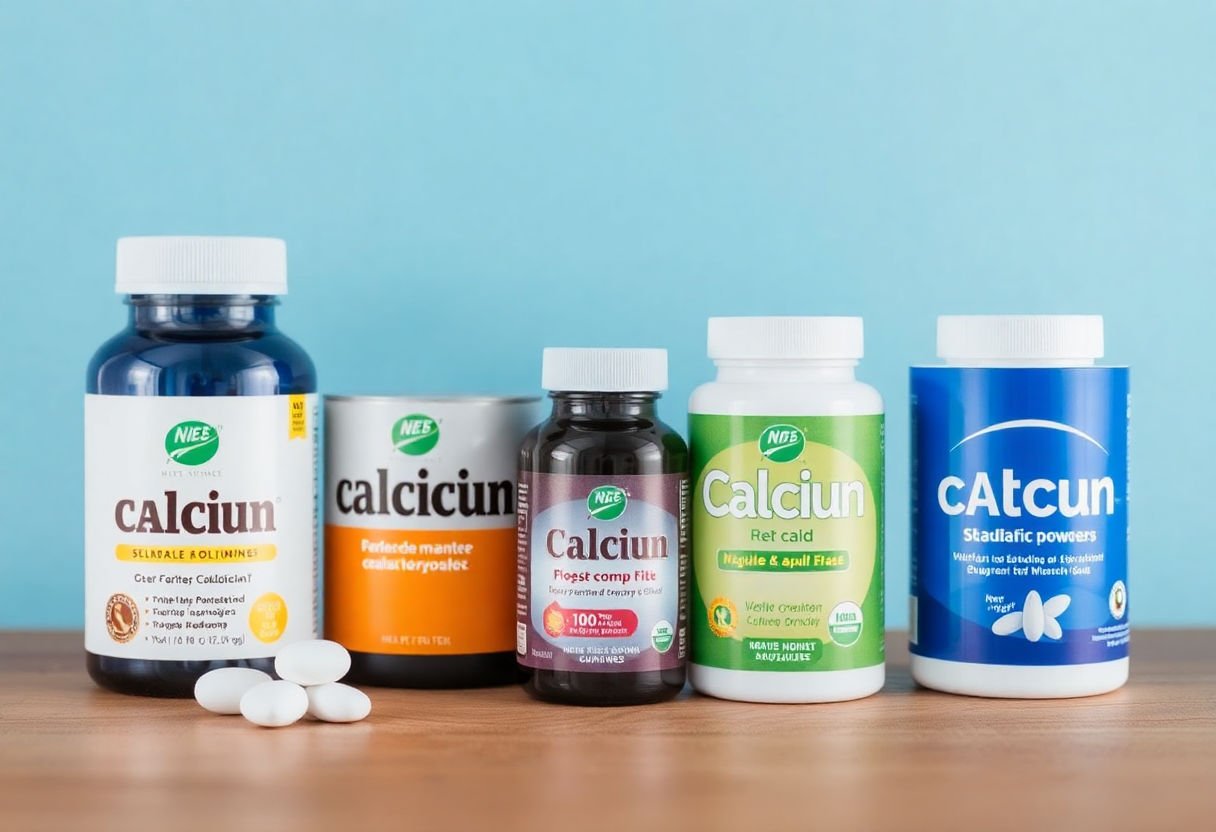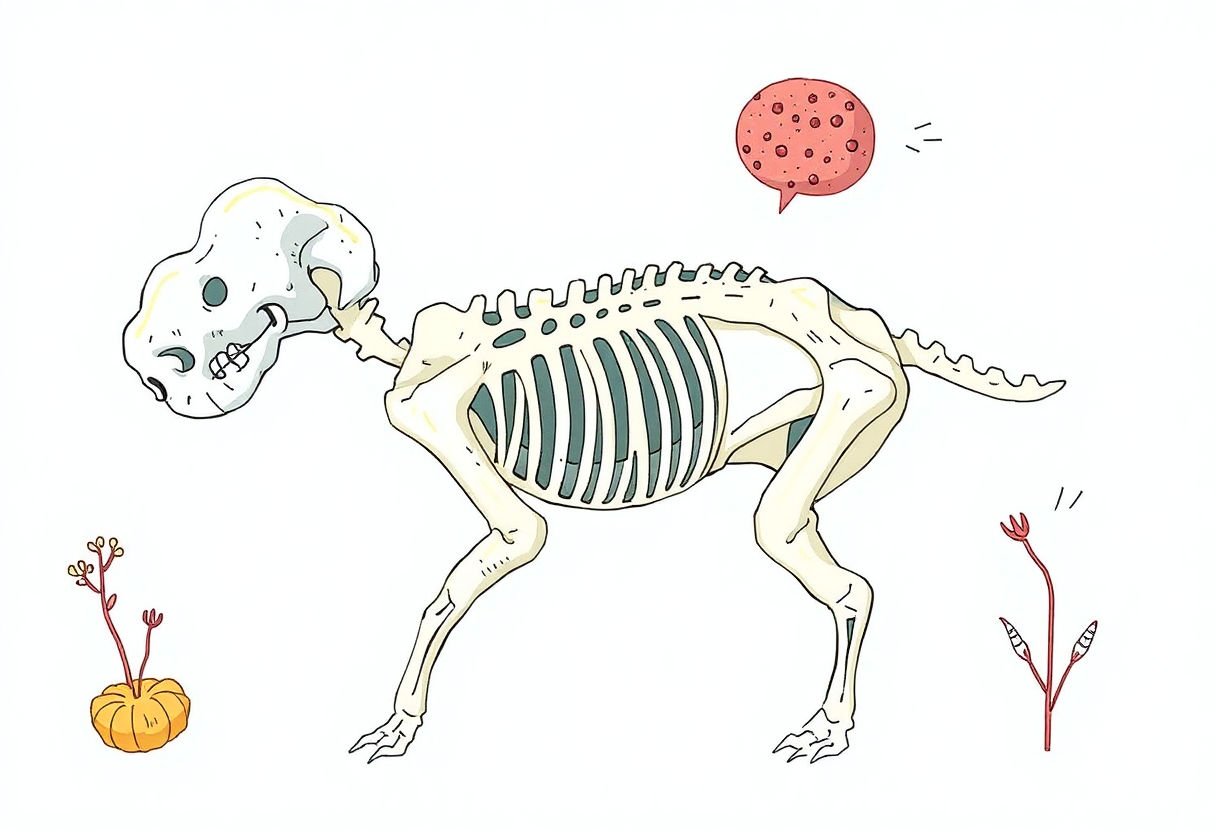Calcium matters a lot for kids. It helps bones grow strong. Supplements can help when kids don’t get enough calcium from food. This article will explore why calcium is key for kids. It will look at daily needs, types of supplements, and natural sources like milk and broccoli. You will learn about choosing the right supplement and balancing calcium with other nutrients. We will also cover possible side effects and clear up myths. Informed choices can boost your child’s bone health.
Key Takeaways
- Calcium is vital for strong bones and growth in children.
- Supplements can help meet daily calcium needs if diet alone is not enough.
- Know your child’s age group to ensure they get the right amount of calcium.
- Talk to a doctor before starting any supplement to ensure safety.
- Balance calcium with Vitamin D and other nutrients for better absorption.
Why Calcium is Vital for Kids

Calcium plays a key role in children’s growth. It supports their bones, which are like the frames that hold their bodies up. Strong bones give them the support they need to run, jump, and play. As kids grow, their bones keep developing. This means they need enough calcium to build and maintain these bones.
Think of calcium like bricks in a wall. Each brick adds strength. Without enough bricks, the wall may not stand tall. In the same way, without enough calcium, bones may become weak. Strong bones need calcium to stay tough and resist breaks.
Calcium helps in other ways too. It supports muscle function. Muscles need it to contract and relax properly. Nerve function also relies on it. Nerves use calcium to send messages throughout the body. It even plays a part in blood clotting. When kids have a cut, calcium helps stop the bleeding.
In growing bodies, calcium is a must. Kids need it daily to meet physical demands and maintain general health. Getting enough calcium during childhood can help prevent future bone problems, such as osteoporosis, which causes bones to become fragile.
Make sure kids have a diet rich in calcium. Foods like milk, cheese, and yogurt offer great sources. A balanced diet ensures they get the calcium they need. If their diet lacks enough calcium, supplements can help fill the gap, keeping their bones strong and healthy.
Daily Calcium Requirements for Different Age Groups
Babies, kids, and teens need calcium. It helps them build strong bones as they grow. But how much calcium do they need every day? Let’s break it down by age.
Infants (0-6 months): They need about 200 mg of calcium per day. Babies typically get this from breast milk or formula.
Infants (7-12 months): At this age, the need for calcium rises to 260 mg each day. Introducing solid foods rich in calcium, like yogurt and cheese, can help.
Toddlers (1-3 years): These little ones need about 700 mg of calcium daily. This is about the same as two small cups of milk.
Young Children (4-8 years): Kids in these years should have around 1,000 mg each day. Think of them having three small glasses of milk or servings of yogurt.
Older Kids and Teens (9-18 years): As they reach their teenage years, their calcium needs peak at about 1,300 mg daily. They might need one more glass of milk than the younger kids to get enough.
Handy Tip:
- Milk, yogurt, cheese, and leafy greens are good sources of calcium.
- If your child doesn’t like milk, mix it with a smoothie or use yogurt in snacks.
Ensuring your child gets the right amount of calcium now can help prevent bone problems later. Keep an eye on their daily intake to support their health and growth.
Natural Sources of Calcium

Milk and cheese come to mind when thinking about sources of calcium. They have lots of it. Kids love these tasty foods and they help build strong bones.
Don’t forget about yogurt. It is creamy and full of flavor. It can be a snack or a part of breakfast. Yogurt has live cultures too, which are good for the tummy.
Leafy greens also have calcium. Spinach, kale, and collard greens are healthy choices. They have a lot of vitamins too, making them super foods for growing children.
Nuts can help too. Almonds, for example, have calcium. They make a crunchy snack. You can sprinkle them on dishes for an extra boost.
Beans and lentils are good options as well. They are small but packed with nutrients. Make a soup or a salad with them and it’s a meal full of goodness.
Sardines might surprise you. They pack a calcium punch. Kids can enjoy them on crackers. Not a fan of fish? Tofu is another option. It is versatile and can be part of many dishes.
Let’s not forget seeds. Chia and sesame seeds are rich in calcium. They are tiny but mighty. Put them in smoothies or sprinkle them over cereal.
Including these foods in a child’s diet daily provides a great natural intake of calcium. This balance supports growth and health.
Types of Calcium Supplements

Calcium supplements come in different types. Each serves the unique needs of children. Knowing these can help make an informed choice.
Calcium Carbonate: This is the most common. It is about 40% calcium by weight. A kid needs less to reach their daily calcium goal. It works best with food. It helps avoid tummy troubles.
Calcium Citrate: This type is easier on the stomach. It is about 21% calcium by weight. It does not need food for absorption. Choose this for kids with sensitive tummies.
Calcium Lactate and Calcium Gluconate: These are less common. They have lower calcium content. For special needs, they become a good option.
Calcium Phosphate: This form supports tooth and bone health. It has a balanced calcium content. It blends well in different food forms.
For kids who dislike pills, try chewable tablets or powder forms. Mix the powder into drinks or soft foods. These work well for picky eaters.
When choosing, consider any dietary needs. Some supplements contain added flavors or ingredients. Check these if your child has allergies.
In all cases, talk to a health expert first. This will keep your child safe and healthy while boosting their bone strength.
Choosing the Right Supplement

Choosing the right calcium supplement for kids involves a few steps. Knowing what to look for can help.
Check the Type of Calcium: Supplements often use calcium carbonate or calcium citrate. Calcium carbonate offers more calcium, but might cause tummy trouble in some kids. Calcium citrate is gentler, making it a good choice for those with sensitive stomachs.
Read the Label for Dosage: Kids need a specific amount of calcium. The label shows how much calcium is in each serving. Compare this with your child’s daily needs.
Form of Supplement Matters: Supplements come in different forms like chewables, gummies, tablets, or liquids. Chewables and gummies often taste better, which can help kids. But remember, gummies might contain extra sugar.
Look for Added Vitamins: Calcium needs vitamin D to work well. Check if the supplement includes vitamin D. This supports better absorption.
Avoid Unnecessary Additives: Some supplements include artificial colors or flavors. Natural options might be better if your child has allergies or sensitivities.
Choose a Trusted Brand: Picking a well-known brand can give peace of mind. They often have strict standards for quality and safety.
Thinking about these factors can help find the right supplement. As with any health decision, consider talking to a healthcare provider. They can provide advice based on your child’s specific needs.
Potential Side Effects and Precautions
Calcium supplements help build strong bones. But they can have side effects. Kids might get stomachaches or feel bloated. Sometimes, these supplements can cause constipation. Encourage kids to drink water. This can help with constipation.
Too much calcium can lead to more serious problems. It can cause kidney stones. It might affect how kidneys work. If a child takes other medicines, check with a doctor. Calcium supplements can interfere with how medicines work.
Precautions:
- Correct Dose: Make sure kids take the right amount. Do not give them too much. Natural Sources: Combine supplements with foods like milk or leafy greens. – Doctor’s Advice: Talk to a doctor before starting any new supplement.
Use calcium supplements carefully. Balance them with a healthy diet. Watch for any unusual symptoms. If a child shows negative reactions, contact a healthcare professional promptly. Prioritize a balanced diet to support bone health.
Balancing Calcium with Other Nutrients
Balancing calcium with other nutrients helps kids grow strong bones. Vitamin D stands out as very important. Without it, kids’ bodies cannot use calcium well. The sun provides vitamin D. Some foods do too, like milk and fish.
Magnesium is another element to consider. Think of magnesium as calcium’s buddy. They help each other work better. Foods like nuts, seeds, and leafy greens have magnesium.
Here’s a simple list of foods rich in key nutrients:
- Vitamin D: salmon, egg yolks, mushrooms
- Magnesium: spinach, almonds, avocados
Then there’s phosphorus. Calcium and phosphorus act like partners building bones. Both need balance. Dairy products and beans are high in phosphorus.
Too much calcium without enough of these other nutrients might not work well. It’s like trying to build a super tall tower without enough blocks at the base.
Finally, protein plays a role too. It helps bones use calcium. Think about how muscles need protein to grow. In the same way, bones need it to stay strong. Good protein sources include chicken, beans, and yogurt.
Think of these nutrients as members of a team. Each one helps calcium do its job better. Together, they keep kids’ bones healthy and strong.
Consulting a Healthcare Professional
Before starting any supplement, talk with a healthcare professional. Just like a teacher helps a student find the right book, a doctor guides the right choice. They look at a child’s age, diet, and lifestyle to suggest the best calcium option.
Questions to Ask:
- What type of calcium is safe?
- How much is the right amount?
- Can it cause any side effects?
Ask these to make informed decisions. The doctor will know any medical conditions or allergies. A wrong choice may cause more harm than good.
A healthcare expert also checks interactions with other medicines. For example, certain drugs may not mix well with supplements. It’s like trying to play two songs on one piano. It just won’t sound right.
Common Tests and Checks:
- Blood Tests: To check calcium levels
- Allergies: Any reactions to supplements
Consulting a professional means understanding the whole picture. It’s about making sure the right balance fuels healthy bones. Getting that balance right feels like solving a puzzle where every piece fits perfectly.
Always keep communication open with healthcare providers. They are there to help parents with each step. This ensures kids get what they need for strong, healthy bones.
Common Myths and Misconceptions

Calcium is vital for developing strong bones, especially in children. But many myths surround calcium supplements for kids. Let’s shed light on some common misconceptions:
Myth 1: Calcium Supplements Replace Good Nutrition
Many think that if a child takes a calcium supplement, they can skip eating calcium-rich foods. This is false. Supplements can help, but they should not replace foods like milk, cheese, and yogurt. Natural food sources provide other nutrients too.
Myth 2: More Calcium Means Stronger Bones
Some believe the more calcium a child takes, the stronger their bones. But bones need balance. Vitamin D helps the body use calcium properly. Without enough vitamin D, calcium can’t do its job well, no matter the amount.
Myth 3: Only Older Kids Need Calcium Supplements
People often think only teenagers need extra calcium because they are growing fast. But younger kids need calcium too. They build bone mass early in life. Doctors can help decide if a child needs supplements.
Myth 4: Calcium Supplements Have No Side Effects
Some believe that calcium supplements are always safe and can have no side effects. But too much calcium can lead to problems, such as constipation or kidney stones. Following the right dosage is key.
By understanding these myths, parents can make better choices for their child’s bone health. Bone strength comes from a mix of good nutrition, the right amount of supplements, and a bit of sunlight for vitamin D.
Conclusion
Choosing the right calcium supplement helps strengthen children’s bones. Supplements and diet play a big role in meeting daily calcium needs. But don’t forget the buddies of calcium like Vitamin D for the best absorption. Always talk to a healthcare professional before starting supplements. This will ensure you make the best choice for your child. Understanding myths about calcium is essential. Making informed choices will pave the way for healthier bones and a stronger future for your kids. Stay proactive and support your child’s growth. Healthier choices today mean stronger tomorrows.
Frequently Asked Questions
How do I know if my child needs calcium supplements?
If your child eats balanced meals and gets enough calcium from food, supplements may not be necessary. Speak to a healthcare professional if you worry about your child getting enough calcium.
What are the best calcium supplements for kids?
Look for supplements that are safe, age-appropriate, and that your child can easily absorb. Chewable and liquid forms often work well for children.
Can my child get too much calcium?
Yes, consuming too much calcium can lead to health issues like constipation or kidney stones. Always use supplements as directed on the label.
At what age should children start taking calcium supplements?
Most children do not need supplements if they get enough calcium from their food. If you have concerns, consult a healthcare professional before starting supplements at any age.
How does Vitamin D help with calcium absorption?
Vitamin D helps the body use calcium efficiently, making it essential for bone health. Ensure your child gets enough Vitamin D from sunlight or supplements if necessary.


